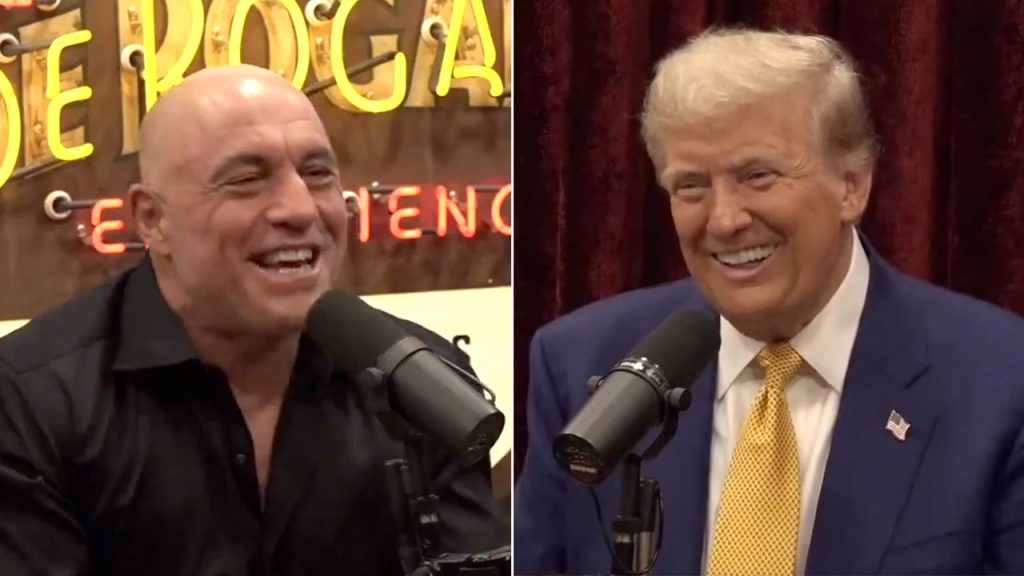Former President Trump recently appeared on “The Joe Rogan Experience” podcast, which gave him exposure to Rogan’s significant number of followers on Spotify and YouTube. Rogan is influential with young male voters, a demographic that Trump is targeting. During the podcast, Trump discussed choosing political nominations while he was in office, including his initial appointment of John Bolton as White House National Security adviser. Trump described Bolton as a “nut job” and criticized his involvement in the Middle East. Rogan pointed out that Trump’s willingness to speak candidly resonated with the public and contrasted with the typical politician’s rhetoric.
Rogan and Trump discussed the shifting landscape of political ideologies, with Rogan noting that the rebels of the past are now aligning with the Republican Party. He criticized liberals for their stance on censorship and silencing criticism. Elon Musk, who now runs Twitter, agreed with Rogan’s assessment. Trump reflected on the challenges he faced as a political opponent and how he was investigated extensively, comparing his situation to that of Al Capone. The conversation highlighted the evolution of political dynamics and the changing perceptions of conservatism and liberalism in today’s society.
Trump shared anecdotes from his interactions with world leaders, including his meetings with North Korean dictator Kim Jong Un. He recounted referring to Kim as “Little Rocket Man” and jokingly telling him to relax and go to the beach instead of building nuclear weapons. Trump emphasized his efforts to establish rapport with Kim, despite their tensions. Rogan mentioned how Obama had concerns of imminent war with North Korea during the transition period, illustrating the high stakes of diplomacy. Trump’s unconventional approach to international relations and his attempts at humor in serious situations were highlighted during the discussion.
The podcast provided a platform for Trump to share his perspectives on various issues, including his management style, interactions with foreign leaders, and handling of criticism. His candid and unfiltered approach to communication, which has both fueled controversy and garnered support, was a central theme of the conversation. Trump’s willingness to engage with different viewpoints, including those of Rogan and his listeners, showcased his adaptability to various audiences. The podcast’s format allowed for a more nuanced and extended discussion of Trump’s policies and personal experiences, providing insights into his leadership style and decision-making processes.
Trump’s appearance on a widely popular podcast like “The Joe Rogan Experience” underscored his efforts to connect with diverse audiences and expand his reach beyond traditional media outlets. By engaging in a long-form conversation with Rogan, Trump had the opportunity to address his critics, share his perspective on relevant topics, and appeal to potential supporters. The podcast served as a platform for discussing current events, political developments, and broader issues related to governance. Trump’s presence on a platform typically associated with entertainment and pop culture signaled a departure from conventional political communication strategies.
Overall, Trump’s appearance on “The Joe Rogan Experience” offered a glimpse into his post-presidential activities, viewpoints, and strategy for remaining relevant in public discourse. The podcast showcased Trump’s ability to engage with a diverse audience, adapt to different interview formats, and share candid insights on various subjects. The conversation between Trump and Rogan highlighted the intersection of politics, media, and popular culture, demonstrating the evolving landscape of political communication in the digital age. Trump’s appearance on the podcast generated significant interest and discussion among listeners, further solidifying his presence as a polarizing figure in American politics.


